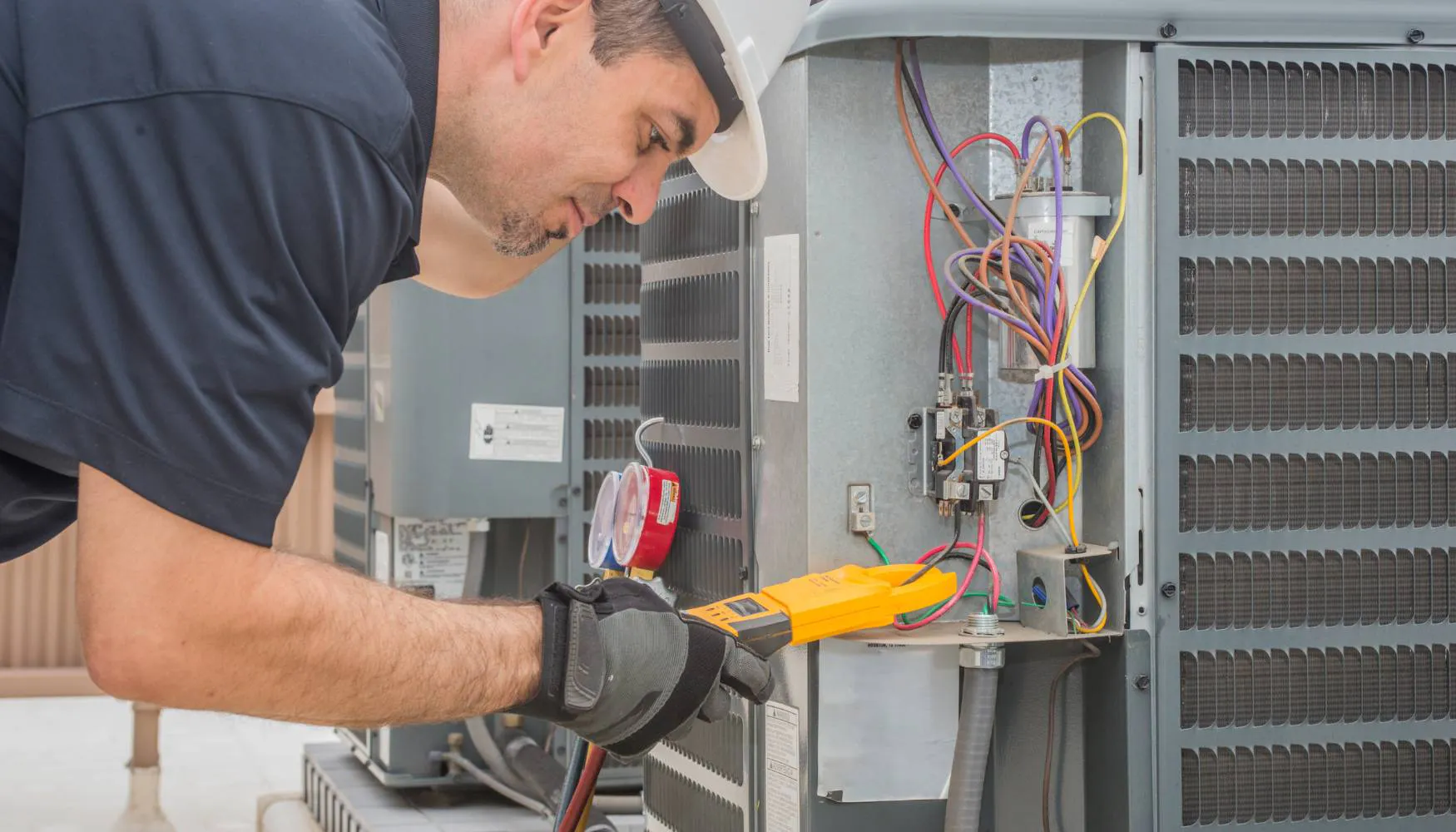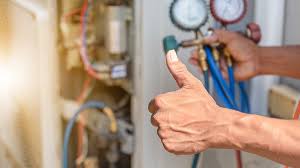Contents
Introduction
Maintaining your HVAC (Heating, Ventilation, and Air Conditioning) system is crucial for keeping your home comfortable and energy-efficient. Regular HVAC maintenance not only extends the lifespan of your HVAC system but also ensures that it operates efficiently, saving you money on energy bills and preventing costly repairs. In this blog post, we’ll discuss eight essential HVAC maintenance tips to keep your system running smoothly.
HVAC Maintenance: Change Air Filters Regularly
- One of the simplest yet most effective ways to maintain HVAC efficiency is by regularly changing your air filters. Clogged or dirty filters restrict airflow, forcing your system to work harder to maintain the desired temperature. Check your filters monthly and replace them every 1-3 months, depending on usage. This simple step can improve airflow, reduce energy consumption, and enhance indoor air quality.

Clean Air Ducts and Vents
- Over time, dust, dirt, and debris can accumulate in your air ducts and vents, obstructing airflow and reducing efficiency. Periodically inspect your ductwork and clean any visible buildup. You can use a vacuum cleaner with a brush attachment to remove dust from vents and ducts. Professional duct cleaning may be necessary for more thorough maintenance, especially if you notice mold or excessive debris.
Schedule Professional Maintenance
- While there are tasks you can perform yourself, such as changing filters and cleaning vents, it’s essential to schedule professional HVAC maintenance at least once a year. A certified technician can inspect your system for any issues, lubricate moving parts, check refrigerant levels, and ensure optimal performance. Regular professional maintenance can prevent breakdowns, extend the lifespan of your HVAC system, and maintain efficiency.
Check and Seal Ductwork
- Leaky ductwork can result in significant energy loss and reduced HVAC efficiency. Inspect your ductwork for any signs of leaks or gaps, such as visible tears or loose connections. Use duct sealant or metal-backed tape to seal any leaks, ensuring that conditioned air reaches its destination efficiently. Properly sealed ductwork can improve comfort, reduce energy waste, and lower utility bills.
Keep Outdoor Unit Clean
- The outdoor unit of your HVAC system, known as the condenser or compressor, requires proper airflow to function efficiently. Regularly inspect the unit and remove any debris, such as leaves, grass clippings, or branches, that may obstruct airflow. Use a garden hose to gently clean the exterior coils and fins, being careful not to damage them. Maintaining a clean outdoor unit can prevent overheating, improve efficiency, and prolong the life of your HVAC system.
Maintain Thermostat Settings
- Optimizing your thermostat settings can help improve HVAC efficiency and reduce energy consumption. During the winter, set your thermostat to a lower temperature when you’re asleep or away from home, and raise it only when needed for comfort. In the summer, raise the temperature when you’re away and lower it when you’re at home. Consider installing a programmable or smart thermostat for greater control and energy savings.
Insulate and Seal Your Home
- Proper insulation and sealing are essential for maintaining consistent indoor temperatures and reducing the workload on your HVAC system. Insulate attics, walls, and floors to prevent heat transfer and keep conditioned air inside. Seal gaps around doors, windows, and ductwork to prevent drafts and air leaks. By reducing heat gain in the summer and heat loss in the winter, you can improve HVAC efficiency and lower energy costs.
Monitor Energy Usage
- Keeping track of your HVAC system’s energy usage can help identify any potential issues or inefficiencies. Monitor your energy bills regularly and compare usage from month to month. A sudden increase in energy consumption could indicate a problem with your HVAC system, such as a malfunctioning component or airflow restriction. Addressing issues promptly can prevent further damage and ensure optimal efficiency.
Conclusion
Regular HVAC maintenance is essential for maximizing efficiency, reducing energy costs, and prolonging the lifespan of your system. By following these eight tips, you can keep your HVAC system running smoothly and comfortably year-round. Remember to schedule professional maintenance, change air filters regularly, and keep outdoor units clean to ensure optimal performance and comfort in your home. With proper care and attention, your HVAC system will continue to provide reliable heating and cooling for years to come.



